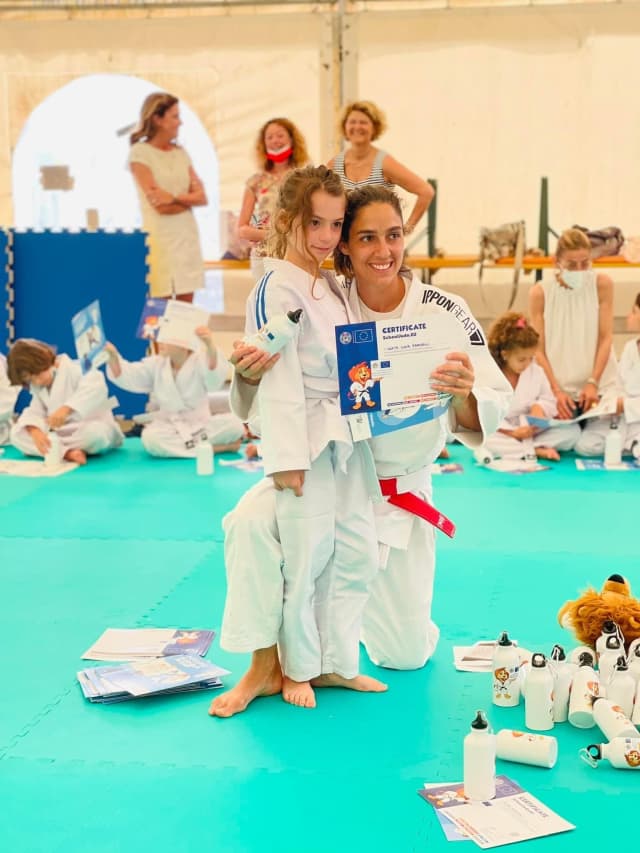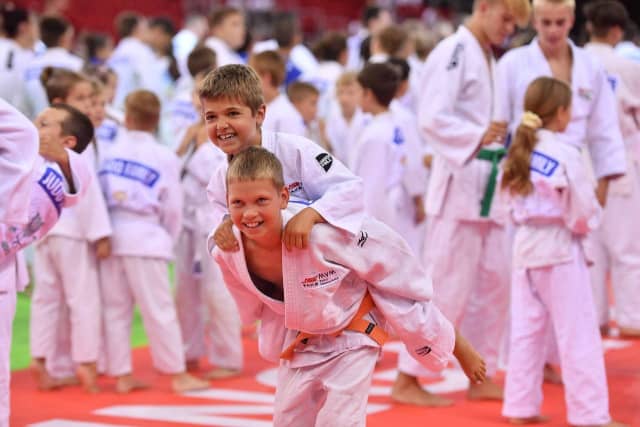To be able to roll out such a widespread programme takes a lot of people, in a lot of roles and one such post is that of EU Project Manager, a role designed to take care of aligning calendars, organising meetings, driving administrative tasks and managing timelines, among other activities. As with all large-scale projects, roles can be long or short term and now this role has come to an end but there is a lot to learn and pass on to the next stage of the programme. The EU Project Manager has now moved on but their reflection is important. Some main points are shared here:
1. Having enjoyed community and university level judo prior to taking up the role, what has a period with the IJF taught you?
“I have learned a great deal during my time with the IJF. The nicest thing to have witnessed is how much every colleague is a big judo fan; we may work within the sport, but everyone is also a fan. I also learned a lot about international judo and how it operates at the highest level."
Coming from a background in grassroots judo management, it was valuable to experience the differences between grassroots and international level development. It is so important that there are synergies between these levels as it creates a framework and supportive structure for promising judoka to progress through, towards national and international success, all within a clearly defined family.”
2. What will be your biggest takeaway for your future?
“Educational frameworks, inclusivity and the creation of opportunities are vital to support young people and those who are seeking better outcomes in adulthood.”
This point is a core philosophy throughout the judo community, especially within the SchoolJudo.EU project. It mirrors the teaching of Jigoro Kano himself, having the goal of perfecting oneself in order to contribute to society.
3. What was the most satisfying part of your role in the Erasmus SchoolJudo.EU project?
“Hearing from our Entertrainers, throughout the pilots, about their experiences; the social-emotional development of the children in their classes. Their experience as a judo-teacher-turned-Entertrainer and trying these new methods of teaching, is important. It was great hearing how they made each SchoolJudo.EU lesson their own, to suit their classes. There was so much hard work that the team behind the scenes (including our partners in the Netherlands, Italy, Slovenia, Hungary and Malta) had done and it was transformed from research, theory and preparation into practice. Furthermore, now we are at the end of the pilots, some of our Entertrainers are already in discussion with their national federations and schools about how they plan to continue with SchoolJudo.EU in September, at the beginning of the new school year.”

4. Which of the judo values played the biggest role in your day-to-day working life?
“This is a hard question for me because I have been a judoka since childhood and so the judo values have been taught to me from a very young age. Arguably all of the values play a big role for me day-to-day: respect, equity, integrity, courage, collaboration through community, never give up, resilience.”
5. Why do you think SchoolJudo.EU is important as a slice of international judo development?
I believe that the ScjoolJudo.EU programme is an important cornerstone of international judo development because it strives to unite ways of teaching children key socio-emotional skills through the judo values in fun environments. Thus it gives children all-important soft skills, helping them to understanding and navigate the world with confidence. This confidence is the physical confidence that girls and boys achieve through sport skill development, alongside emotional confidence, supported by the learning and practising of behaviours through the core judo values.”
Truly great projects don’t just have an impact on their target audiences but on all people involved, at every level. The SchoolJudo.EU programme is inspiring and educating children through judo but is also providing a great deal of positive reflection for the adults at the heart of its organisation and delivery.

